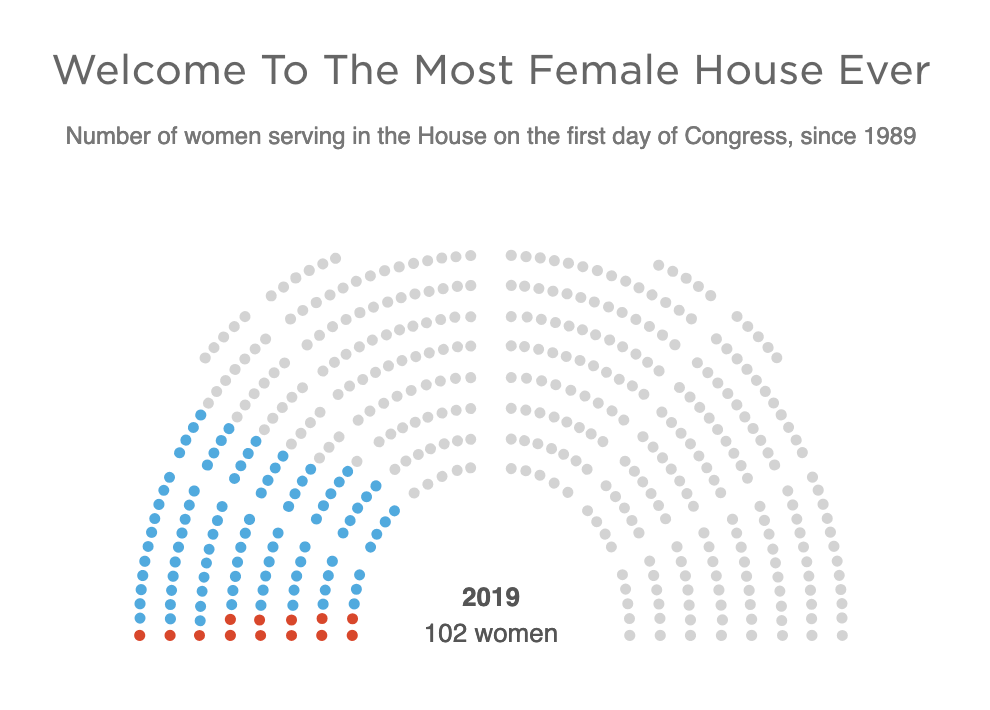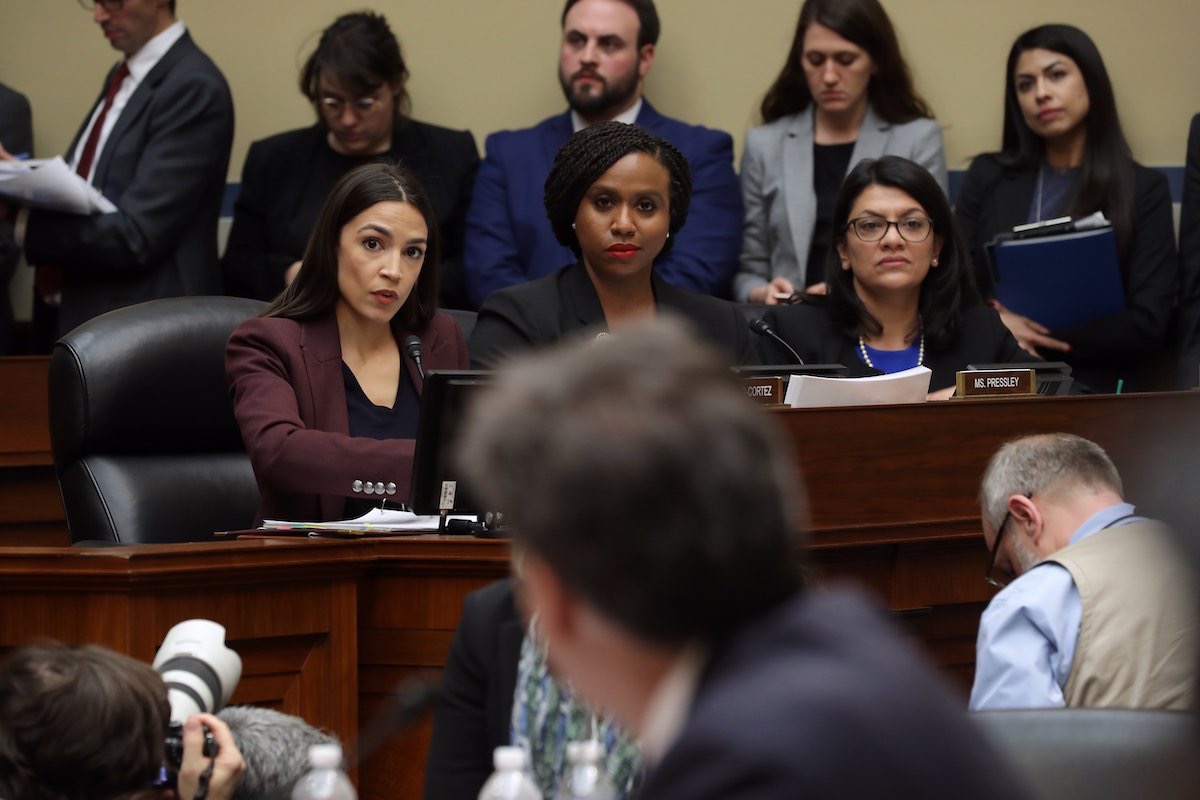Wednesday, many of us watched, as former personal lawyer to Donald Trump, Michael Cohen, testified before the House Oversight committee. In his opening statement, Cohen called President Trump a “racist, conman, and a cheat.” Unfortunately, watching a white man being called out appropriately is never as satisfying as it should be. Usually, these events tend to be traumatic *cough Brett Kavanaugh cough* — reinforcing the status quo that accountability never looks the same for white men as it does for the rest of us. Yet, this hearing, while not without moments of ridiculousness, exceeded my expectations, thanks to three new congresswomen: Democratic Representatives Alexandria Ocasio-Cortez (NY.), Ayanna Pressley (Mass.), and Rashida Tlaib (Mich.).
During the hearing, Rep. Mark Meadows, a white Republican congressman from North Carolina, brought Lynne Patton, a black woman who works in the Trump Administration’s Department of Housing and Urban Development . By bringing her, Rep. Meadows hoped to challenge Cohen’s labeling of Trump as a racist using the oh-so-popular “Black friend card.”
Seem problematic? Dare I say racist? I thought so too. But even in 2019, I expect these situations to be ignored by our representatives, leaving most of us to flock to Twitter to debrief and find validation for our frustration.
However, this year is a little different. Why? Women. Or more specifically, women of color. Granted, women still only make up 23.4% of the US House of Representatives. But believe it or not, this is a vast improvement from 20% before the midterms. To be clear, that’s a total of 102 women and just 43 women of color. Don’t get out your confetti just yet. We still have a long way to go before Congress reflects what our country actually looks like.

When you zoom in on the demographics of the Oversight and Reform Committee, iit gets a little better. Of the 42 members, 13 are women (31%) and 7 are women of color. Three of those women were newly elected this year.
It is these three women who transform the direction of this hearing. A couple hours after Rep. Meadows introduced Trump’s token Black friend, Rep. Ocasio-Cortez began her questioning. Her interrogation of Cohen was so compelling, The New York Times’ headline was “How Alexandria Ocasio-Cortez Won the Cohen Hearing” and Slate’s “Did Alexandria Ocasio-Cortez Just Lay Groundwork for Democrats to Subpoena Trump’s Tax Returns?” To watch a Latina from the Bronx, newly elected to Congress, appear on television in front of a committee of largely white men and conduct the best line of questioning, validates what we already know — women of color are not only capable, we excel. We’ve worked twice as hard to get half as far and AOC’s performance proves it.
Rep. Ayanna Pressley shined too, taking a different approach to dealing with Cohen. Like so many of us, she knew Trump was racist long before Michael Cohen decided to announce it to the world. So she asked Cohen during the hearing, “Would you agree that someone could deny rental units to African-Americans, lead the birther movement, refer to the diaspora as ‘shithole countries,’ and refer to white supremacists as ‘fine people,’ have a black friend, and still be racist?” “Yes.” Cohen replied. Not only did Rep. Pressley make a statement about how racism actually works, she showed quickly and concisely that simply presenting your token Black friend proves nothing.
And finally Rep. Rashida Tlaib took the stage and addressed Lynne Patton’s presence directly. “Just because someone has a person of color — a black person working for — them does not mean they aren’t racist,” she said. “And it is insensitive that some would…use [as] a prop a black woman in this chamber, in this committee. [That is] racist in itself.” Immediately, Rep. Meadows demanded a retraction from Rep. Tlaib for her daring to appropriately label his racist behavior.
I don’t know about you, but this interaction didn’t seem foreign to me. Certainly Rep. Meadows was more concerned with being called racist than examining the ways his behavior WAS racist. And the person of color, here Rep. Tlabi, spent all her energy restating, in excruciating detail, her comments — even though she was right all along. THIS is the POC twilight zone so many of us live in. So many times people of color, especially women of color, are forced to educate white people about racism, often times at their own expense. I am sure it’s not the first time that Rep. Pressley or Tlaib have had to have this type of conversation. I know it won’t be the last. As I watched them on TV, I felt a natural connection. I’ve had these conversations myself and it was invigorating seeing someone who looked like me — in the halls of Congress no less — reflecting my experience.
The fact is these women are now in the room where it happens, where the laws and decisions that govern our country are shaped. It wasn’t long ago when rooms like these wouldn’t have allowed in women like Rep. Ocasio-Cortez, Pressley, and Tlaib. They stand as living testaments to the generations of women who’ve made their journey possible. Watching these three Congresswomen of color felt like the opening of the door through which so many more women will enter the halls of power. And I can’t wait to see what that room looks like.

